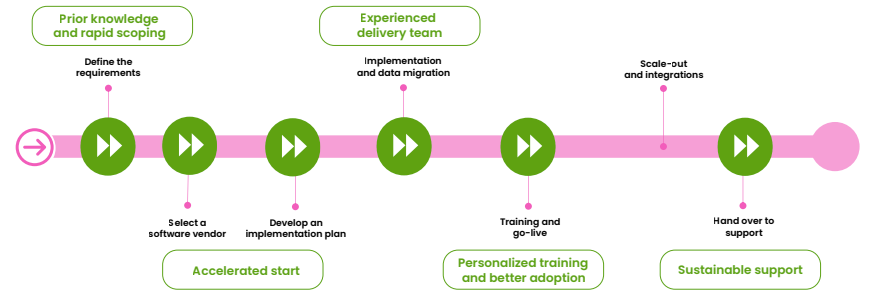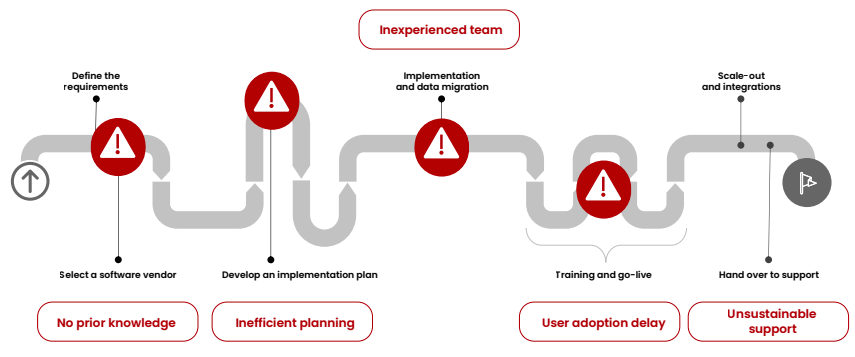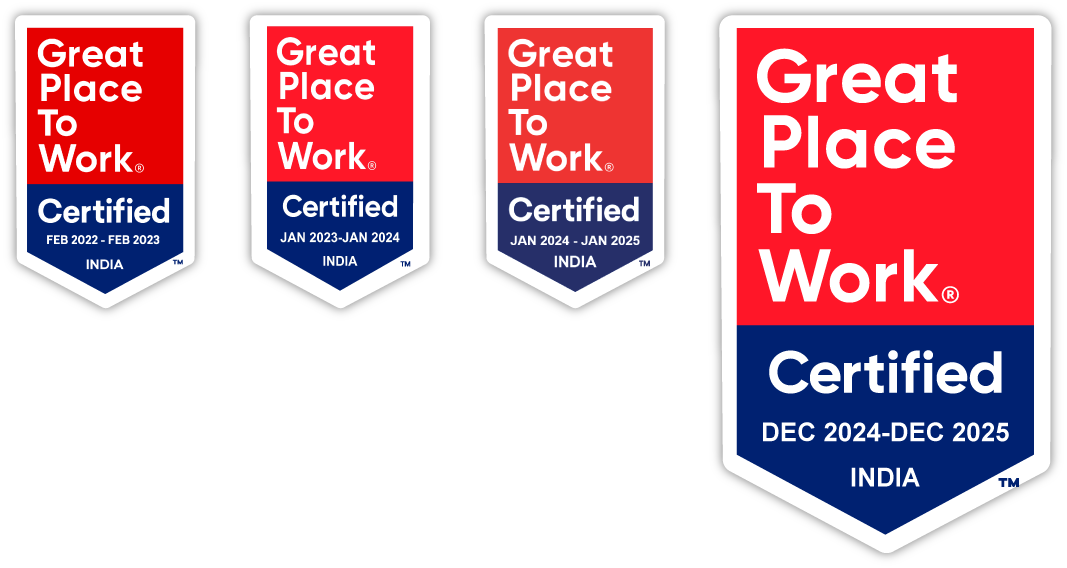Electronic Laboratory Notebooks (ELNs) and Laboratory Information Management Systems (LIMS) support researchers and play an important role in productivity, accuracy, and recording. Numerous commercial off-the-shelf (COTS) software options exist for ELN and LIMS, with different applications, industry focuses, data integration features and regulatory compliance options, choosing the right tool is the key to success. A wrong tool can be counterproductive, and traditional integration project approaches can take years to complete.
Do you know which is the right one for your needs? This is where Excelra steps in with strategic ELN and LIMS consulting services to help you reduce your time for selecting the right tool all the way to implementation ensuring that your lab tools are working for you, not against you. This would also give you up to 25% time saving.
ELNs and LIMS – effective digital solutions replacing traditional experimental data collection. This is not an idea anymore, it is happening now as you read this blog.
Why implement ELN and LIMS?
- Improve data management
- Streamlining workflows
- Facilitate cross-collaboration
- Achieve regulatory compliance
- Ensure data integrity
How does it bring about more efficiency and value?
Efficient lab research demands optimised software solutions to ensure maximum output. Have you come across a situation where one software is not integrating with another and this leads to more manual work? The right ELN and LIMS can help researchers and scientists manage their data, simplify collaboration and meet regulatory compliance standards too; but the tool must integrate well with your existing tools. Traditional integration approaches can stretch over several months to years. With Excelra’s strategic ELN and LIMs consulting services , you can save 25% of your time and be sure that your lab tools are working for you and not against you. On an average a 6-8 month implementation dotted with trial and error can be completed in 3-5 months seamlessly with Excelra’s expert consultants. The hallmark here is efficiency and accuracy in each step of the whole project.
What are the key challenges that you face in an ELN and LIMS implementation?
Choosing the right solution
Many organizations struggle to select the most suitable ELN and LIMs for their needs from the vast list of available products . We need to be futuristic too and be sure that other systems/ tools that we may invest in, will also integrate well. The holistic picture is missed out many times and it also takes much time to evaluate what will work and what will not with each tool. Software in the whole workflow.
Efficient Installation and Integration
Implementing ELN and LIMS requires technical expertise. In- depth knowledge across the lab workflow and various softwares and tools that are to be integrated is needed. This expertise will minimize disruptions and maximize benefits.
Internal training and scalability
Inadequate internal training and scalability will hinder the success of ELN and LIMS adoption. Comprehensive training plan and execution is needed to ensure that the lab develops smoothly.
Regular maintenance
Just like any other software ELN and LIMS systems also requires regular maintenance to function optimally. It has to be up-to-date and aligned as per industry standards.
What are some of the common mistakes that can occur during the selection and implementation steps?
Rushing the selection process
Careful evaluation of options across the specifications, features, scalability, vendor reputation etc must be done before finalization.
Ignoring the user inputs
This is normally a very time-consuming step to gain the feedback, needs, details on the workflow and softwares or systems to be integrated. One miss and you lose big on your investment as well as time.
Lack of change management
Moving from manual to automated process is a big change, almost like a cultural shift. This calls for proper planning, training and communication in order to achieve successful implementation and usage.
Not considering the future growth
Labs scale up over years, adding new instruments, upgrading softwares and much more. Choosing the right ELN and LIMS that can scale along with the lab growth is key.
Why choose Excelra?
Excelra’s consulting services stand out for several reasons.
Experienced professionals
Certified project and program managers, with extensive experience in navigating across various frameworks with ease.
Customized solutions
Excelra collaborates closely with clients to tailor project and program solutions that address the customer’s unique needs.
Navigating a complex and diverse ELN and LIMS marketplace
An organization might already know some of the solutions available on the market. However, in terms of finding the right functionalities, it’s critical to understand which of these are configurable and customizable to their needs and to anticipate future requirements.
Our Approach vs Traditional Approach
The below illustration explains how you can save time and reach your ELN and LIMS implantation and start reaping the benefits sooner.


Conclusion
Whether you are initiating a digital transformation, optimizing lab processes or seeking to derive more value from your lab data, Excelra’s deep domain expertise will enable you to avoid mistakes from selection to implementation is at your service. If your aim is to set up your lab for success with streamlined plug & play workflows, and enhanced productivity which is what ELN and LIMS offers but only if implemented well. Then Excelra is your guide to future growth of your lab.
Radha Thammineni, Associate Director, R&D Informatics at Excelra, comments on the importance of ‘futureproofing’ ELN and LIMS implementations to ensure they are suitable for the longer term: “How we do research is changing rapidly and will increasingly digitise and further automate over the next few years, deploying robotics, AI and other technologies,” says Radha. Without considering these requirements at an early stage, he says from experience, organizations will likely have to revisit and consolidate their ELN and LIMS approaches to support new requirements within a few years. Radha continues: “Data means a lot to us at Excelra, and we’re keen that our clients achieve a longer-term return on investment by considering each specific situation and, by deeply understanding their current and future needs, selecting and implementing the right ELN and LIMS for each one.”
Excelra’s ELN and LIMS team members have over 5 years of experience in ELN and LIMS, with PhDs across biotechnology, bioprocessing, bioanalysis, biochemistry, and chemistry. As a qualified extension to clients’ teams.
To learn more about Excelra’s ELN and LIMS consulting services, see: https://www.excelra.com/our-services/technology/eln-and-lims-consulting-services/
We bring strong experience working with the following ELN & LIMS platforms

Embark on a new era of research management with our ELN & LIMS Services. Request our help Now.


